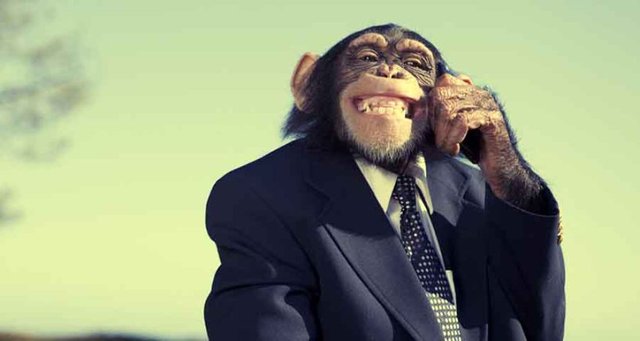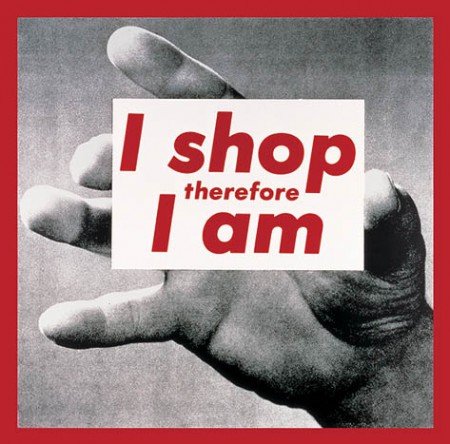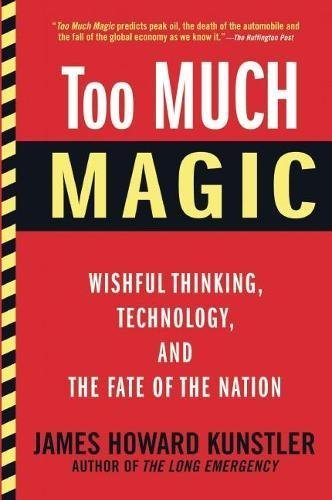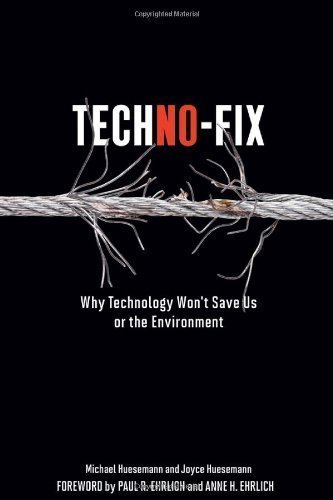The Third Industrial Revolution
Yesterday I watched VICE's new documentary "The Third Industrial Revolution" which is in the format of a presentation by Jeremy Rifkin who is a social and economic theorist, political advisor and author of over 20 books.
Rifkin was one of the sources of inspiration for my blog series Netonomy where I briefly mentioned his ideas of the conjoining of new distributed technology infrastructure (communication, energy and mobility) enabling this new economic paradigm. It's a very compelling idea and admire his work and public speaking although I remain mostly sceptical that humans will be able to meaningfully avert the unfolding and compounding planetary crises that threaten human and non-human life in this century.
Rifkin starts the talk by noting how productivity has been declining for twenty years all over the world resulting in high unemployment, particularly amongst Millennials. He then draws attention to the drastic and dysfunctional wealth inequality that exists with 40% of people living on $2 a day or less and with the 62 wealthiest people having a combined wealth of half the total population. He then turns to the central existential issue, the great abyss that is climate change, its impact on water cycles and the anthropocene extinction.
"Each time the chemistry of the planet shifts very quickly there's what we call a turning point and massive die out. And after the massive die out of life, it takes upwards of 10 million years to get new life back on Earth."
-- Jeremy Rifkin
I remember coming across multiple references that mention how human psychology is very poorly suited to dealing with the threat of climate change. We may be anatomically modern human-beings augmented by technology, but our behaviours are still very primal and hedonistic (i.e. present-oriented). Climate change is a very complex process which extends beyond an individual lifetime and requires a globally coordinated effort at every level of society. Humans have evolved to be parochial altruistic however, which effectively means we're tribal animals.

So what are we do?
Rifkin compels us that we need a new economic vision for the world. That much is obvious. We need story tellers, people who can help crystallise that vision, cement the pieces together.
"The single greatest barrier to the needed economic transformation may be the prevailing cultural story that there is no viable alternative."
-– David Korten
I don't believe we have the luxury of time for story telling anymore, we've been struggling to find new narratives for how to live on this planet for 50 years or more. Given the pace of decay and deterioration, Rifkin emphasises that plans have to be deployed rapidly if we have any chance to avert the worst of climate change and that we need to be "carbon free" within 40 years. Again, I'm cynical here - there are too many vested interests in keeping "Business as Usual" going as long as possible. Furthermore our political institutions are too slow, disconnected and undemocratic to be able to react effectively to coming threats. There's also a pervasive culture of short-termist thinking throughout our society because our thoughts are constrained and conditioned by our existing pathological social institutions and value systems. For example the endless rhetoric of pursuing "economic growth" over any other measure or of reducing every aspect of life to a economic transaction. Finally there's a whole lot of people out there who are just plain ignorant, too preoccupied with their own day to day existence/trying to get by, apathetic or at best armchair activists or resistant to change. People generally will only act when their immediate circumstances threaten their life.

Chapter One, Rifkin highlights that each major economic paradigm shift that has occurred in history are predicated by the convergence of three technologies (communication, energy and mobility) which create a new infrastructure that fundamentally changes the way in which the economy works and society organises itself. For example during the First Industrial Revolution in the 19th century with the convergence of the telegraph, steam power and locomotives and during the Second Industrial Revolution in the 20th century with the convergence of the telephone, oil and automobiles. Not withstanding, the industrialisation of the economy is entirely dependent on fossil fuels with many of the products that we use in daily life being made with fossil fuels, yet global oil production is in terminal decline.
Chapter Two, Rifkin looks at declining productivity and the misconceptions ingrained within classical economic theory which was influenced by Newtonian physics.
"Economics is governed by the same laws that govern the universe, the solar system, the biosphere on Earth, and every single thing you and I do in our economic life while we're here on this planet."
-- Jeremy Rifkin.
Refreshing to hear in context of economics, Rifkin then goes on to state the first two laws of thermodynamics:
- Energy can neither be created nor be destroyed (Law of Conservation).
- The quality of matter/energy deteriorates over time (Law of Increased Entropy).
Through each stage in a value chain some energy is lost during conversion of materials from one form into another. Rifkin describes how in economics this known as "aggregate efficiency" and is the ratio of the potential work versus the actual useful work you actually embed in the good or service. He argues that economies cannot increase their productivity ceiling without moving to new infrastructure which enables better aggregate efficiency.
Chapter Three, here the conversation moves to the Internet of Things (IoT) which bridges what Rifkin calls the "communication internet", "renewable energy internet" and "automated transportation-logistic internet". Combined these networks will allow for smart distribution and utilization of finite resources. With this comes a shift towards open and decentralised modes of production which leads to new business models and social entrepreneurialism. Rifkin then finishes by looking at the risks around online privacy and the importance of net neutrality.
Chapter Four, this chapter looks at the importance of (near) zero marginal costs of production in facilitating the establishment of the sharing economy. Marginal cost being what it costs to produce a unit after fixed costs have been deducted. With information technology the marginal cost of producing digital products for example an MP3 or video is zero. As a result we've all become content creators, giving our time freely to contribute online. This stands in contrast to the conventional economic theory that each individual pursues their own self-interest and never cares about the public good. Rifkin reminds us that (near) zero marginal costs extend beyond the digital world, one example being the declining cost of renewable energy production allowing people to produce their own renewable energy locally. Another example is car sharing and the move to access over ownership. Vehicles of the future will be 3D printed with composite recycled materials.
"Knowledge is not power if it's something one possesses at the expense of someone else. Knowledge is the shared experience you have as a social being."
-- Jeremy Rifkin
In this chapter Rifkin also takes the opportunity to point out the second largest source of greenhouse gases, animal agriculture and meat consumption. Something I'm glad was mentioned as he rightly says the issue is very taboo. The reality is that animal agriculture has the lowest aggregate efficiency of all industries, it takes up vast amounts of land and requires enormous amounts resources such as water, feed, antibiotics and transport etc to maintain. Not only that but billions of animals are raised and slaughtered each year in appalling conditions. Cows and fertilisers emit large amounts of methane and nitrous oxides respectively which are both highly potent greenhouse gases. Fertilises and antibiotics are washed in to rivers and find there way into the ocean causing algal blooms and dead zones in the ocean.
"Nothing will benefit health or increase chances of survival on earth as the evolution to a vegetarian diet."
-- Albert Einstein
There is ofcourse another highly taboo subject which arises when drawing a logical conclusion on the impacts of human activity on the environment, antinatalism. Then again due to various factors sub-replacement fertility is becoming a present reality.
Chapter Five, Rifkin briefly mentions how plans are being rolled out across the world and the need to prioritise investing new infrastructure over maintaining old infrastructure.
Chapter Six, impresses the need to co-ordinate and mobilise skilled and unskilled workers to get this smart infrastructure off the ground and replace/upgrade what we currently have.
"I'm always amazed when I fly and I see electricity grids across continents, and highways and urban centres. And I think, My God! That was all done in 50, 60 years? It's amazing!"
-- Jeremy Rifkin
Don't think we have that long...
- Nasa-funded study: industrial civilisation headed for 'irreversible collapse'?
- Limits to Growth was right. New research shows we're nearing collapse
Chapter Seven, the closing chapter is about the need for a new consciousness, an empathic awareness of interconnectedness of all life.
Problems cannot be solved by the same level of consciousness that created them."
-- Albert Einstein
"[The Millenial] generation is moving from ownership to access, from markets to networks, from consumerism to sustainability, from market capital to social capital."
-- Jeremy Rifkin
The so-called "Millennial" generation of which I'm a part (according to the definition) think quite differently to older generations. Rifkin goes on to suggest that to previous generations to be free is to be an autonomous agent (i.e. self-interested, independent etc), whereas to Millennial autonomy is death. Instead Millennial strive to be embedded in networks, to share their talents openly to benefit others and themselves. From this perspective freedom is in inclusivity, not exclusivity.
"Prosperity is relating, not acquiring."
-- Tom Brown, Jr
Rifkin suggests that older generations typically believe that power should be organised hierarchically whereas younger people see that power is in networks.
"Power does not reside in institutions, not even the state or large corporations. It is located in the networks that structure society."
-- Manuel Castells
The talk then concludes with some questions from the floor so I'll close with a few thoughts of my own. I particularly liked the conversation at the end where someone mentioned that there are a lot of people out there who share this passion, who care, but they are being purchased out. To me this just highlights the dysfunction within our value systems, most people chose money over meaning.
"We have not found a way to let industry pay us to save our own lives."
-- Bruce Sterling
I remain dubious that human civilisation can redeem itself or indeed metamorphose into homeostasis. Rifkin asks of me to make too many leaps of faith in the face of a world of spiralling chaos and complexity.


That said, none of us are free from biases so perhaps my perspective on this matter is off the mark. We (the meme machines) tend to gravitate towards people who share similar ideas as ourselves and avoid those who harbour differing ideas. Surround yourself with people who are convinced they're changing the world and perhaps you actually will. At the end of the day we're all worm food, all one can do is pursue a life of excellence whatever that means to you... (goes back to watching cat videos).
Congratulations @holoplex! You received a personal award!
Click here to view your Board
Congratulations @holoplex! You received a personal award!
You can view your badges on your Steem Board and compare to others on the Steem Ranking
Vote for @Steemitboard as a witness to get one more award and increased upvotes!